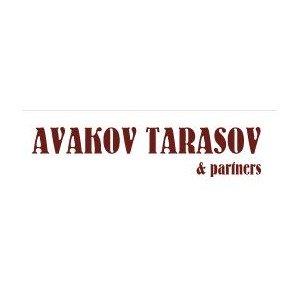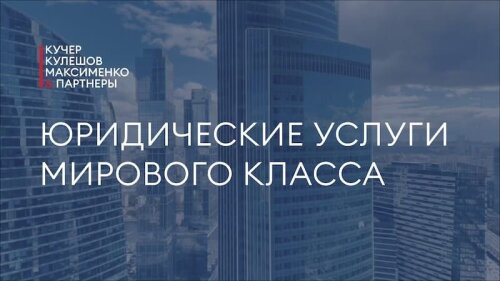Best International Trade Law Lawyers in Moscow
Share your needs with us, get contacted by law firms.
Free. Takes 2 min.
List of the best lawyers in Moscow, Russia
About International Trade Law in Moscow, Russia
International Trade Law in Moscow, Russia, operates within the framework of both national legislation and international treaties to which Russia is a party. It involves the rules and principles governing the exchange of goods, services, and capital across borders. This field of law covers areas such as import/export regulations, tariffs, trade agreements, and international dispute resolution. In Russia, the regulatory landscape is influenced by its participation in global organizations like the World Trade Organization (WTO) and the Eurasian Economic Union (EAEU).
Why You May Need a Lawyer
There are numerous situations where individuals or businesses might require legal assistance in International Trade Law in Moscow. These include navigating complex import/export regulations, negotiating and drafting international contracts, resolving trade disputes or compliance with international trade sanctions. Lawyers specializing in this field help businesses understand and mitigate legal risks associated with cross-border trade operations, ensuring compliance with both domestic and international laws.
Local Laws Overview
In Russia, International Trade Law is influenced by several key factors. The customs code of the Eurasian Economic Union, Anti-dumping regulations, and trade agreements play significant roles. Russian trade laws are known for their complexity, covering various aspects such as licensing requirements for certain imports and exports, customs duties, and trade barriers. Understanding these local regulations is crucial for businesses engaging in international trade activities in Moscow.
Frequently Asked Questions
What is the role of the Eurasian Economic Union in Russian trade law?
The Eurasian Economic Union (EAEU) is a regional organization of countries in Eastern Europe and Northern Asia representing a significant influence on Russian trade laws. Member countries, including Russia, align their trade policies, tariffs, and customs procedures under a single regulatory framework.
How do international sanctions affect trade with Russia?
International sanctions can significantly impact trade with Russia by restricting the business operations of foreign companies, limiting exports, and affecting financial transactions. It’s crucial for businesses to stay updated on current sanctions and comply with them when engaging in trade with Russia.
What legal documentation is needed for importing goods into Russia?
Importing goods into Russia generally requires several documents, including a customs declaration, commercial invoice, contract, packing list, and certificates of origin and quality. Depending on the type of goods, additional permits or licenses might be necessary.
How can a lawyer assist with international trade disputes in Moscow?
A lawyer can provide crucial assistance in resolving international trade disputes by advising on arbitration processes, representing clients in international courts, and helping to negotiate settlements or other forms of dispute resolution.
Are there specific compliance requirements for exports from Russia?
Yes, exporting goods from Russia involves compliance with local regulatory frameworks, including adherence to export control laws, obtaining necessary licenses, and ensuring products meet the requirements of the destination country.
How does Russian trade law address anti-dumping measures?
Anti-dumping measures in Russia are regulated under national and EAEU laws to protect domestic industries from unfair foreign competition caused by dumping of products at below-market prices.
What is the significance of trade agreements in Russian trade law?
Trade agreements play a significant role by establishing mutually beneficial trade conditions between Russia and other countries, reducing tariffs, and easing trade restrictions while ensuring compliance with international trade norms.
How do import tariffs affect international trade in Russia?
Import tariffs influence the cost of goods entering Russia, affecting pricing strategies and market competition. Businesses must calculate these costs into their pricing models to remain competitive in the Russian market.
What steps should be taken to handle a breach of contract in international trade?
If a breach of contract occurs in international trade, it is advisable to consult with a legal professional who can review the contract’s governing law clause, evaluate the situation, and guide through dispute resolution mechanisms like arbitration or litigation.
What is the role of Russian customs authorities in international trade?
Russian customs authorities are responsible for regulating and facilitating international trade by enforcing import/export restrictions, collecting customs duties, and ensuring compliance with trade regulations.
Additional Resources
For further information and resources on International Trade Law in Moscow, individuals can consult the following:
- Ministry of Economic Development of the Russian Federation: Provides insight into Russia's trade policies and international economic relations. - Eurasian Economic Commission: Offers detailed information on customs regulations and economic integration within the EAEU. - Chamber of Commerce and Industry of the Russian Federation: Assists businesses in understanding trade laws and processes. - Russian Export Center: Provides support for Russian exporters, including legal advice and documentation assistance.
Next Steps
If you require legal assistance in International Trade Law in Moscow, consider the following steps:
1. Clearly define the legal issue or trade challenge you are facing. 2. Research and reach out to law firms or legal experts specializing in International Trade Law who have experience working in Moscow. 3. Prepare all relevant documents, such as contracts, invoices, and correspondence, to present to your lawyer. 4. Schedule a consultation to discuss your case, understand the legal implications, and explore possible solutions. 5. Work collaboratively with your lawyer to devise a strategy that complies with international trade regulations and protects your interests.
Lawzana helps you find the best lawyers and law firms in Moscow through a curated and pre-screened list of qualified legal professionals. Our platform offers rankings and detailed profiles of attorneys and law firms, allowing you to compare based on practice areas, including International Trade Law, experience, and client feedback.
Each profile includes a description of the firm's areas of practice, client reviews, team members and partners, year of establishment, spoken languages, office locations, contact information, social media presence, and any published articles or resources. Most firms on our platform speak English and are experienced in both local and international legal matters.
Get a quote from top-rated law firms in Moscow, Russia — quickly, securely, and without unnecessary hassle.
Disclaimer:
The information provided on this page is for general informational purposes only and does not constitute legal advice. While we strive to ensure the accuracy and relevance of the content, legal information may change over time, and interpretations of the law can vary. You should always consult with a qualified legal professional for advice specific to your situation.
We disclaim all liability for actions taken or not taken based on the content of this page. If you believe any information is incorrect or outdated, please contact us, and we will review and update it where appropriate.
















